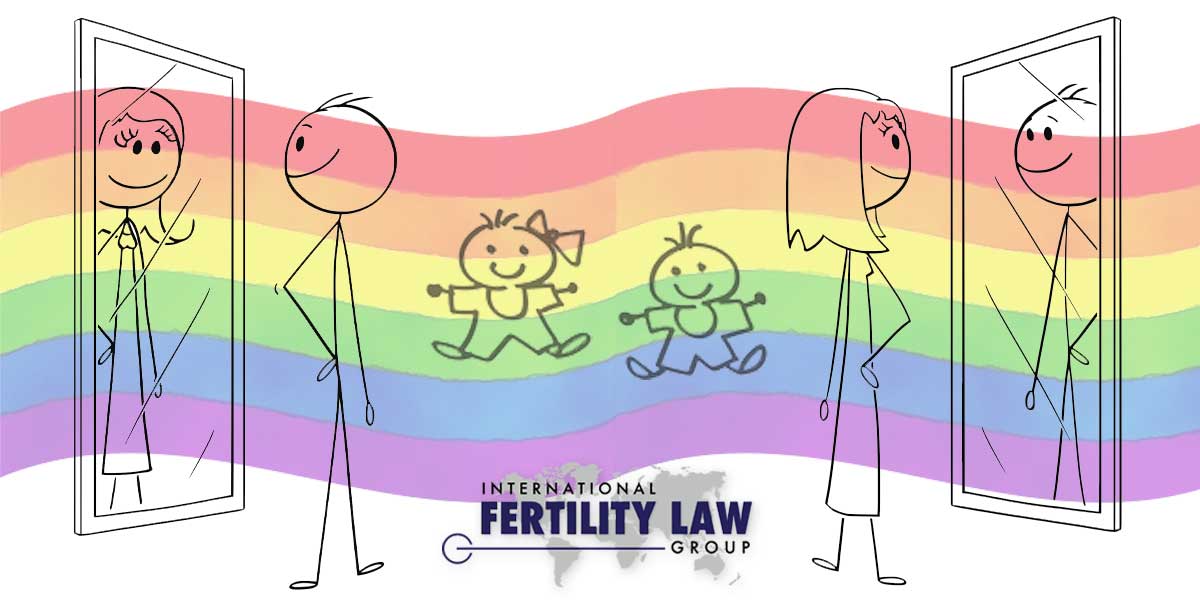
15 Jun 2021 Transgender Youth Deserve Answers, Solutions to Fertility Preservation Questions
More than a third of transgender people—who constitute an estimated 0.7 percent of the U.S. population—want to have biological children—either right now, or in the future. Yet, according to a report by Medscape, a news source targeted to physicians and health care professionals, only 10 percent of transgender people opt to preserve their future fertility by freezing their eggs or sperm before undergoing gender-affirming hormonal therapy that MAY leave them infertile.
Today, many parents proactively collaborate with physicians, educators and childcare professionals to guide their transgender children into healthy, happy adulthood, including helping them find the medical treatment needed to live comfortably in their true genders.
Yet, tragically, in many parts of the country, transgender children still face state and local laws that deny their existence, hostile school boards that degender and humiliate them, and a lack of professional mental health and health care services to help them through it all.
The reasons so few transgender youths undertake fertility preservation by freezing egg, sperm or other reproductive tissue before beginning hormone treatment are no doubt many and complex. But, as recent studies show, the lack of comprehensive data and clear information leaves many young people and their loved ones in the dark when contemplating one of the most consequential decisions of a lifetime.
Transgender Youth, Families Face Lack of Fertility Preservation Information
Between 33 percent and 54 percent of transgender and nonbinary individuals express a desire to have biological children now or in the future, and almost 95 percent strongly support making fertility preservation procedures available to transgender people, ob/gyn physician Dr. Marie Menke, MD, from the University of Michigan at Ann Arbor told Medscape.
Yet the vast majority of people who transition do not undertake fertility preservation.
One reason is the lack of hard data on outcomes and about how gender-affirming hormonal treatment will affect the ability of transgender individuals to reproduce in the future, according to the Medscape report.
Among the many unanswered questions facing transgender youth and their parents:
- How does hormone therapy, which typically involves suppression of reproductive functions, impact an individual’s future fertility?
- What are the health or psychosocial impacts of interrupting gender-affirming therapy or therapeutic hormonal treatment in order to undertake fertility preservation?
- What are the chances patients will be able to have biological children if they undertake fertility preservation? What are the chances if they do not?
- Will fertility preservation services be available to them in their area, and, if so, will they be able to afford the services?
Transgender Youth May Not Consider Future Fertility
One factor impacting the decision to undertake fertility preservation is age. For adolescents assigned the wrong gender at birth, particularly for transgender females, health professionals often recommend administering hormones before puberty, to suppress puberty and to prevent some of the permanent physical changes that occur with puberty. The issue is particularly fraught for adolescents, so young they may not even have considered whether or not they want to be parents someday. 'This level of shared decision-making requires time and multidisciplinary involvement in the face of…limited data,” said Menke, "and even with the best of counseling it can be quite overwhelming."
All too often, the availability of competent counseling depends on where the adolescent lives.
Transgender people—the “T” under our rainbow-hued LGBTQ umbrella—have historically and continue to suffer disproportionately from lack of access to culturally competent health care services.
Even as our society makes strides toward full equality, raising questions about the risk of hormone treatment to fertility will no doubt give fuel to those who would deny transgender people the right to full lives and reproductive equality. Already conservative reactionaries are using the societal responsibility to protect children as an excuse for denying transgender kids the treatment they need. But we can do better.
Today, we have the technology, the psychological understanding and the wisdom to help transgender youth achieve healthy, happy lives. We have everything we need to provide children and their parents with both answers and solutions, so that no one is forced to choose between living their true selves and their future fertility. Transgender people and their loved ones deserve nothing less.

















